Posted May 3, 2024 by Tiffany Lee
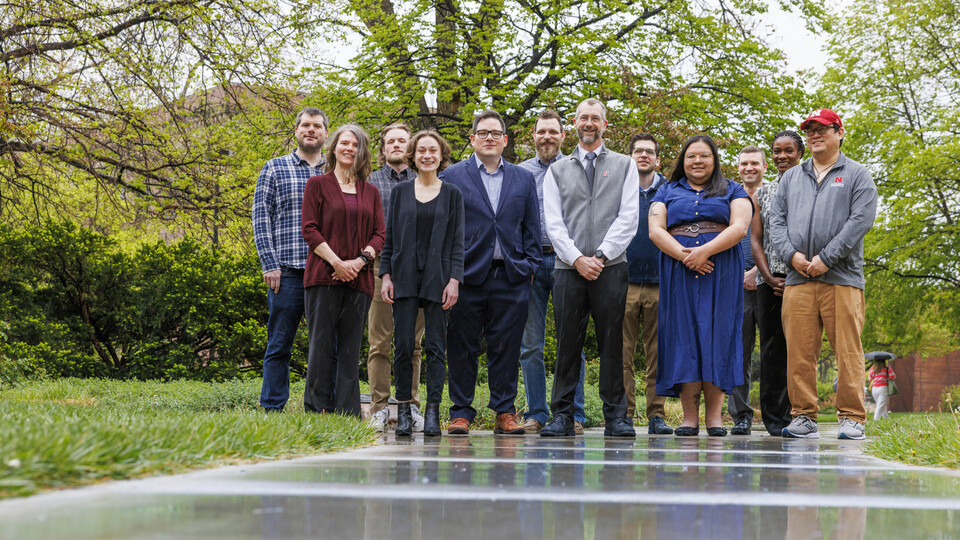
Rural Drug Addiction Research Center renewed for five more years
Who: Rick Bevins, Mildred Francis Thompson Professor of Psychology
and associate vice chancellor for research; Kimberly Tyler, George Holmes University Professor of Sociology; Devan Crawford, center coordinator for the Rural Drug Addiction Research Center
What: The Rural Drug Addiction Research Center received an $11,597,682 Phase 2 renewal grant from the National Institutes of Health’s Centers of Biomedical Research Excellence Program to continue its work through 2029. Using an interdisciplinary, data-driven approach, the center advances understanding of causes, impacts and interventions related to drug use and misuse in the Midwest, a historically understudied area. The center’s first phase of research has established that drug use and misuse in rural areas present unique problems. For example, the stigma of substance misuse can be greater in a smaller community that has less anonymity. In Phase 2, researchers will expand their studies on a wide range of topics and begin to engage with communities about research findings and next steps. A major goal is to change community perceptions.
“We need to make inroads on decreasing stigma because stigma in my opinion is the number one barrier to getting supports and healing,” said Bevins, principal investigator and center director.
Writer: Dan Moser, Office of Research and Economic Development
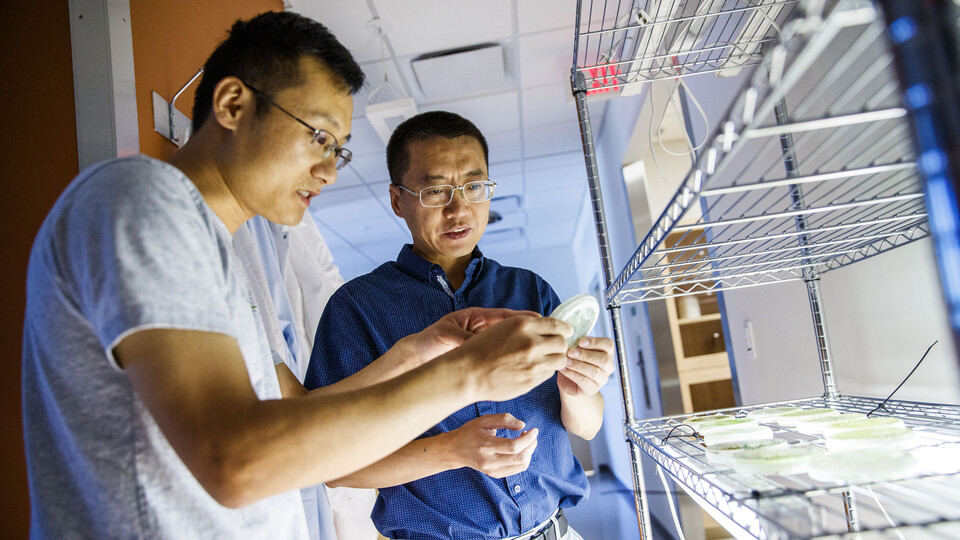
Project leads to major discovery about earliest plant life on Earth
Who: Yanbin Yin, professor of food science and technology; Xuehuan Feng, postdoctoral research associate in food science and technology
What: Yin co-led an international research team that generated the first genomic sequence of four strains of Zygnema algae, the closest living relatives of land plants. The work sheds light on plants’ ability to adjust to their environment and provides a rich foundation for future research. The team accomplished the feat by applying a range of cutting-edge DNA sequencing techniques to four algal strains from the genus Zygnema, generating complete genomes for these organisms at the level of whole chromosomes. The discovery holds significance for the applied sciences, such as bioenergy, water sustainability and carbon sequestration. The international collaboration includes about 50 researchers from 20 research institutions in eight countries.
“This is an evolutionary story,” Yin said. “It answers the fundamental question of how the earliest land plants evolved from aquatic freshwater algae.”
Writer: Dan Moser, Office of Research and Economic Development
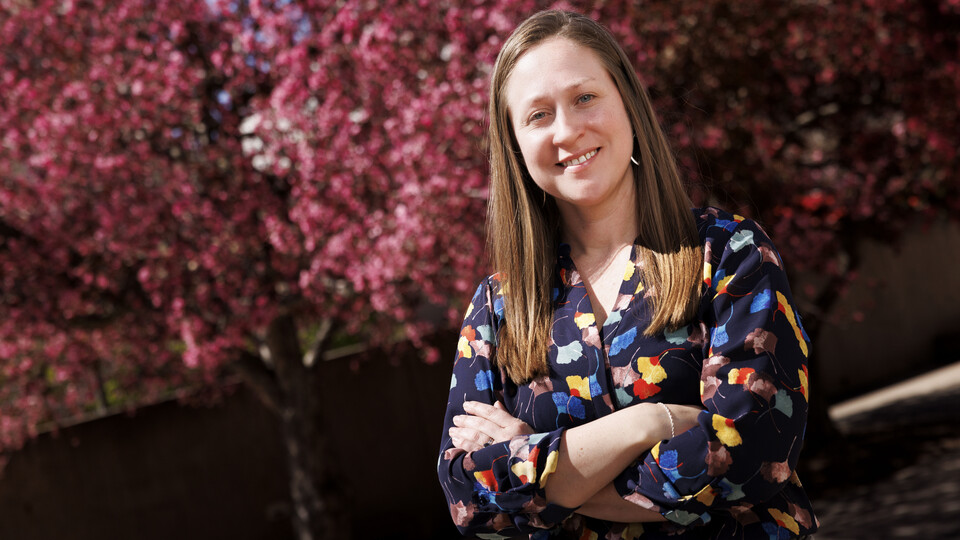
Votruba earns CAREER award to study legal help decisions
Who: Ashley Votruba, assistant professor of psychology and a member of the university’s Law-Psychology Program
What: Votruba earned a $660,000 grant from the National Science Foundation’s Faculty Early Career Development program to explore why individuals do not seek legal assistance, particularly people of color and members of low-income households, who historically have been underserved by the legal system. She will conduct national surveys to shed light on how people across a wide demographic range perceive the legal system and how they manage emerging civil justice problems. Votruba will also launch a community workshop program in Nebraska focused on enhancing access to justice. The project is innovative for its exploration of the civil justice gap through the lens of psychology.
“As a psychologist, I’m interested in things at the level of the individual,” Votruba said. “By really focusing on the parties involved, we’re going to get a better ground-level understanding of the issue.”
Writer: Tiffany Lee, Office of Research and Economic Development
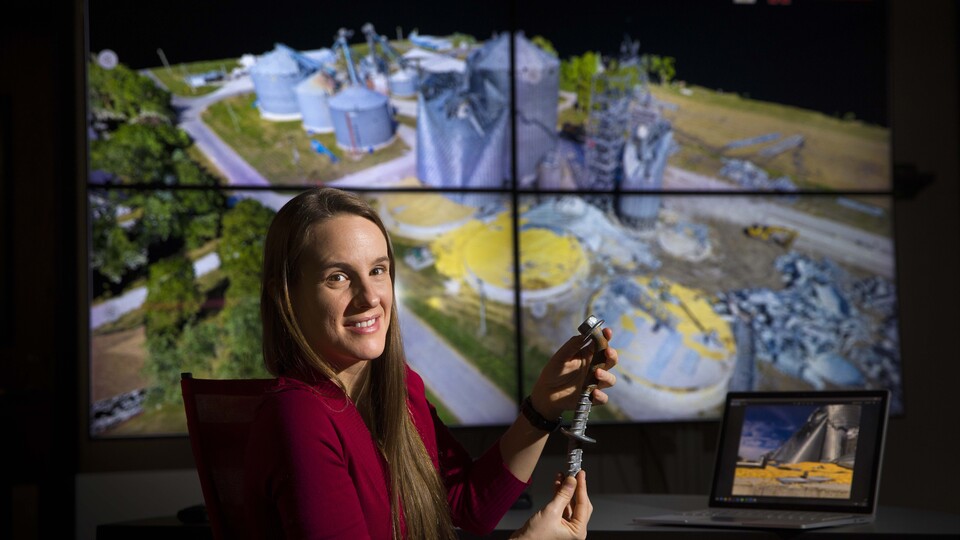
Wittich aims to strengthen grain bins against earthquakes, wind storms
Who: Christine Wittich, assistant professor of civil and environmental engineering
What: Wittich received a $615,387 Faculty Early Career Development Program award from the National Science Foundation to study structural engineering problems related to steel grain bins, which are vulnerable to natural disasters like wind storms and earthquakes. The failure of a single bin can lead to losses exceeding $250,000 and negatively impacts America’s agricultural economy and national and global food security. Wittich will study how steel grain bins hold up under seismic and wind loads using numerical modeling, large-scale experimentation, earthquake simulations and more. Ultimately, the research could lead to different construction standards for bins. Wittich’s team also aims to draw more rural students into the engineering field.
“We’ll introduce them to structural engineering within their communities,” Wittich said. “There’s a noted disparity with students from rural areas pursuing engineering. It’s significantly lower than students from more urban areas.”
Writer: Dan Moser, Office of Research and Economic Development
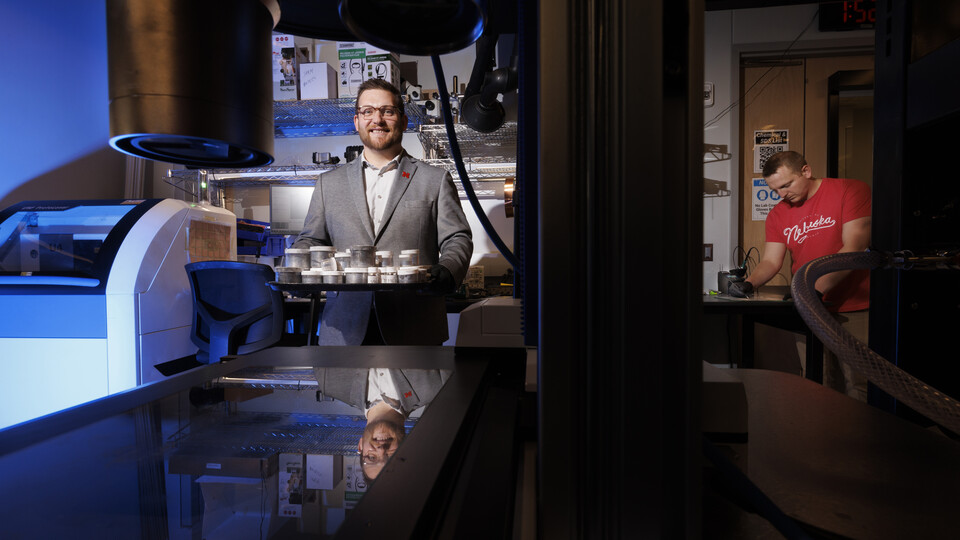
Federal award supports Markvicka’s work on soft materials for robotics, stretchable electronics
Who: Eric Markvicka, assistant professor of mechanical and materials engineering
What: Markvicka is using a $690,000 grant from the National Science Foundation’s Faculty Early Career Development Program to advance work on a manufacturing approach that would produce a novel class of materials that could propel the fields of soft robotics, stretchable electronics and beyond. It would be the first manufacturing strategy to yield stable mixtures of liquid metals with a wide range of solid particle additives to achieve enhanced properties – including thermal and electrical conductivity, fluidity and capacity for self-repair – that exceed anything on today’s market.
“At the end of this project, we’ll have a manufacturing strategy for creating diverse liquid metal mixtures that are appropriate for additive manufacturing,” Markvicka said. “Such capabilities will enable the engineering of new materials for hybrid 4D additive manufacturing where we can create a number of things, from robotics to machines, that ultimately mimic biological organisms.”
Writer: Tiffany Lee, Office of Research and Economic Development
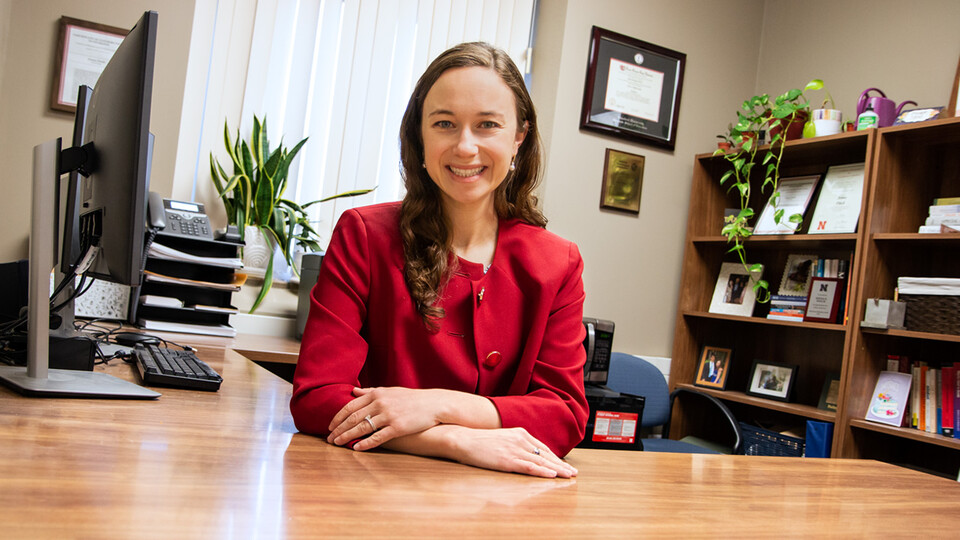
Research explores how classroom time affects children’s self-regulation skills
Who: Jenna Finch, assistant professor of psychology
What: With a grant from the American Educational Research Association, Finch will study the relationship between instructional time and children’s non-academic skills, which are critical for school success. While there is a clear connection between time in school and reading and math gains, it is less clear how instructional time affects skills like executive function, which includes working memory, flexible thinking and self-control. Finch will examine data from a survey that included approximately 18,000 children who were in kindergarten in fall 2010 to clarify the relationship between school attendance and executive function development. She aims to better understand whether children who are absent from school may need additional support for their self-regulation skills, and what those supports should be.
“I want to understand how being in school relates to self-regulation skills, and why. These skills are so predictive of long-term achievement and educational outcomes, as well as health and income, and adult well-being. Self-regulation skills help people be successful in life,” Finch said.
Writer: Chuck Green, Nebraska Center for Research on Children, Youth, Families and Schools
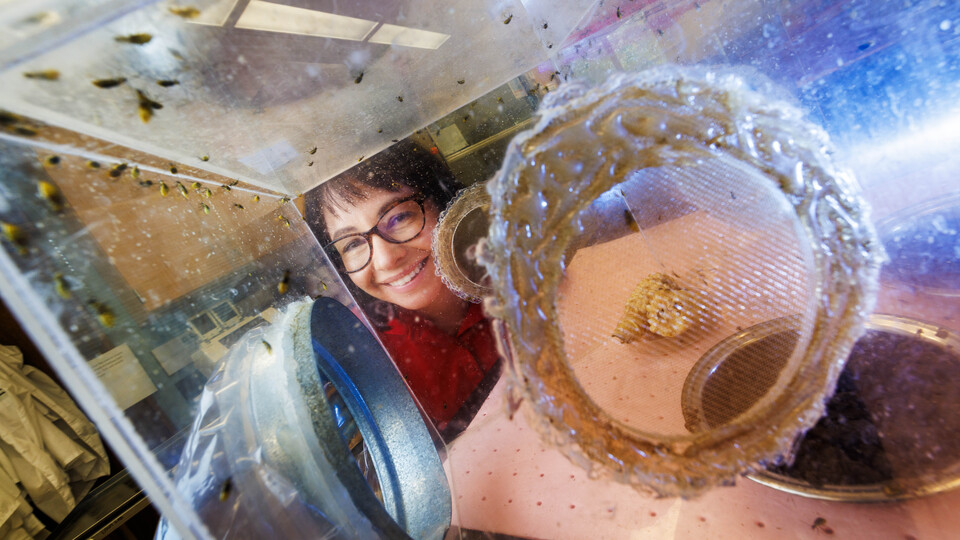
Vélez is a leader in genetic technology to contain corn rootworm
Who: Ana Maria Vélez, associate professor of entomology
What: Vélez is pioneering a genetic technology to contain the western corn rootworm, which each year causes up to $2 billion in yield loss and control costs in the Corn Belt. The genetic technique, known as RNAi, increases rootworm larvae mortality to protect the corn plant. Vélez and co-author Ken Narva recently discussed their new paper on this topic at North Carolina State University, which describes how RNAi functions, its current agriculture applications and regulatory views of RNAi-based pesticides. This presentation is the latest in a series of invited talks in the U.S. and internationally for Vélez, reflecting her global leadership in the field. She said developing genetic techniques to add to the inventory of preventive actions against corn rootworms is crucial because of their extraordinary adaptive ability.
“They have evolved resistance in different locations to different kinds of pesticides, to Bt’s (proteins toxic to rootworms) and even to crop rotation,” Vélez said. “They learn to lay eggs on soybeans, because they know it will be sown in corn probably the following year. They are really an amazing insect in some ways, in that they adapt to everything.”
Writer: Geitner Simmons, Institute of Agriculture and Natural Resources

McMahon earns NEH funding to study Ukrainian refugee resettlement
Who: Patrice McMahon, professor of political science
What: McMahon earned funding from the National Endowment for the Humanities to study the resettlement of Ukrainian refugees in Poland and the grassroots humanitarianism that made it possible. She will collaborate with scholars from UNL, Adam Mickiewicz University in Poland and the Institute of Philosophy and Sociology at the Polish Academy of Sciences to examine the motivations, practices and limitations of grassroots humanitarianism through ethnography, textual analysis, and experiential and embodied learning. The project also will involve local participants in an art-based workshop, with the goal of exploring their feelings on aid, national identity and culture.
“I am shocked and delighted by this NEH grant,” McMahon said. “And I am excited to work with my colleagues from UNL and in Poland on this interdisciplinary project that looks at why and how people and community organizations helped receive and integrate refugees. There are few topics as important as the fate of vulnerable people fleeing war.”
Writer: Deann Gayman, University Communication and Marketing






